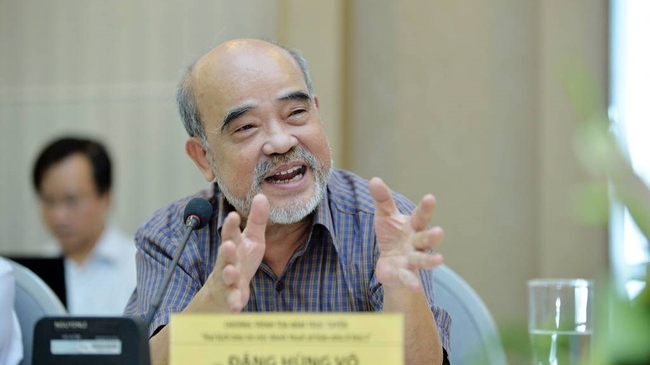Vietnam turns semiconductor vision into action
The global semiconductor industry is being reshaped by geopolitical tensions, shifting supply chains, and the surge of digital technologies.




Former Deputy Minister of Natural Resources and Environment said that the allocation of land to investors in the special economic zones (SEZs) with a longer period of time will create more valuable real estates.

The draft Law on Special Administrative-Economic Units has been discussed by the National Assembly on a number of preferential policies related to land and assets, of which the land use duration for production and business in SEZs lasting up to 99 years is most remarkable thing.
TheLEADER had an interview with Dang Hung Vo, Former Deputy Minister of Natural Resources and Environment, around this issue.
It has been suggested that the land allocation plan lasting up to 99 years should be adjusted as it affects the general level and do harms for the state. What do you think about this issue?
Dang Hung Vo: I think that 99 years or even longer period does not do harms. The term of land use for production and business is only the landmark of the rights of the investors. In the case they want to extend, they must get the approval and consent from the management agency.
When an investment project expires, it is possible for the investor to propose an extension which may be several more years of additional capital upgrading or perhaps a new investment cycle.
The land which has been an industrial park is only changed when it does not work or the investor want to change it. At the end of one investment cycle, if the investor proposes and the business does not cause any harm, it will be extended by the State.
Therefore, the extension of the two 50-year cycles or 100 years of duration is no different. Putting the 99-year number help investors fell better and I do not think this creates inequality or over-reliance.
This can be considered as a simplified form of extension of investment project. With longer cycles, investors are more likely to spend money on more permanent constructions, making our property more valuable in the world. This is normal, we should not complicate the story itself but should think in a simple way.
If three special economic zones are given a particular mechanism, it is likely that the Land Law will have to be amended. In addition, if other localities also require the number of 99 years, can the state manage it? What are your opponions about that?
Dang Hung Vo: Other provinces can not claim because particular mechanism is applied only for SEZs. If they want to claim, they have to strive to become a special zone.
For SEZs, policies and regulations are specified in the SEZs law. I think that the law of the SEZs only need not to violate the Vietnam's Constitution and it is acceptable if SEZs law is opposite to other laws.
The thought that SEZs must follow the general legal framework can be said to be narrow.
If this draft is put into practice, what is your forecast of its influence on investment attraction in Vietnam's SEZs?
Dang Hung Vo: I think the attraction will be stronger with more big and professional investor.
We can make comparison after we put this draf into practice to see what policy produce more positive results. For example, after ten years, we will see what makes SEZs evolve or what makes it so underdeveloped and then we will get the summary and the adjustment.
I believe that if there are appropriate and timely adjustments, we will build three special economic zones that are very good investment incentives and become the bridge between the Vietnamese economy and the world economy.
In addition to the question of land allocation, do you notice any shortcomings in the law on land now?
Dang Hung Vo: I think that land policy has two main disadvantages.
First, we do not have the right of property under civil law into the land law. This gives the land owner the feeling that something is lacking in order to be confident that this land is his property.
Second, the state still intervenes too deep and even directly in the land market, which distorts the real estate market.
It is better for the market to decide how to coordinate the land to meet the investment process. In particular, only when corruption in land management must be eliminated completely, new real estate market can bring high efficiency.
Sincerely thank you!
The global semiconductor industry is being reshaped by geopolitical tensions, shifting supply chains, and the surge of digital technologies.
The change in APA approval authority is expected to shorten processing time and enhance business proactiveness in international tax negotiations.
As hybrid cloud systems grow more complex, Vietnamese enterprises are struggling to detect cybersecurity threats moving laterally within their own networks.
The submission of the draft resolution on Vietnam’s international financial center to the National Assembly heralds a new developmental era for the country.
More than just running a 5-star resort, Kristian Petersen is redefining the art of hospitality with a humane and sustainable leadership philosophy.
For Tyna Huynh, co-founder of Drinkizz, organic is not just a food choice but a way of life that fosters a deep connection between people, nature and community.